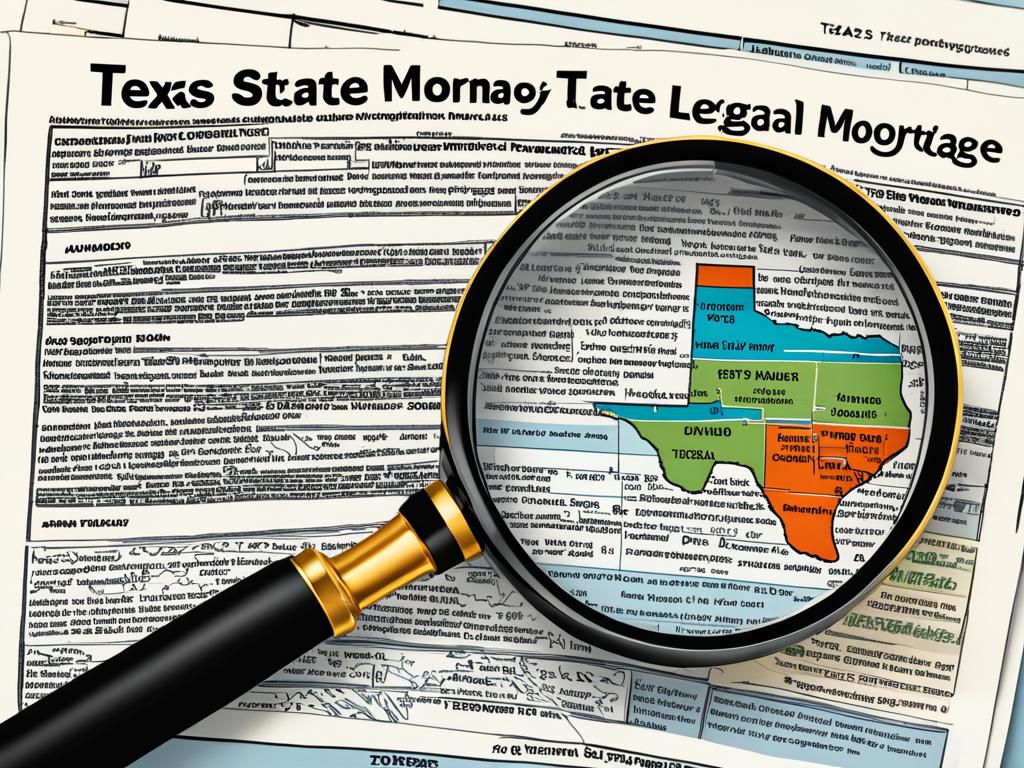Reverse Mortgage in Texas: A Comprehensive Guide
A reverse mortgage is a loan that allows homeowners aged 62 and over to borrow against the equity in their homes. In Texas, reverse mortgages are available through different types, including Home Equity Conversion Mortgages (HECMs), single-purpose reverse mortgages, and proprietary reverse mortgages. To qualify for a reverse mortgage in Texas, homeowners must be 62 or older, own their home, have sufficient equity, and occupy the home as their primary residence. The amount of money that can be borrowed through a reverse mortgage depends on factors such as age, home value, current interest rates, and the chosen product.
Key Takeaways:
- Reverse mortgages allow homeowners aged 62 and over to access equity in their Texas homes.
- Different types of reverse mortgages are available in Texas, including HECMs, single-purpose, and proprietary.
- To qualify for a reverse mortgage in Texas, homeowners must be at least 62 years old, own their home, have sufficient equity, and live in the home as their primary residence.
- The amount that can be borrowed through a reverse mortgage in Texas depends on factors such as age, home value, current interest rates, and the chosen product.
- Homeowners in Texas can use a reverse mortgage calculator to estimate their eligibility and potential loan amount.
How Does a Reverse Mortgage Work?
A reverse mortgage offers a unique way for homeowners in Texas to tap into the equity of their homes. Unlike a traditional mortgage, where borrowers make monthly payments to the lender, with a reverse mortgage, borrowers receive funds from the lender without the obligation of making regular payments. Instead, the loan balance increases over time as interest and fees accumulate.
With a reverse mortgage, homeowners have several options for accessing the funds. They can choose to receive a lump sum payment, establish a line of credit to draw on as needed, receive monthly advances, or combine these options according to their financial needs and goals.
Unlike other loans, a reverse mortgage doesn’t need to be repaid until the homeowner sells the home, moves out, or passes away. At that point, the loan balance, along with any accumulated interest and fees, is typically paid off using the proceeds from the sale of the home. If the home is sold for more than the loan balance, the homeowner or their heirs may keep the remaining proceeds.
The amount that can be borrowed through a reverse mortgage in Texas depends on several factors:
- The age of the homeowner
- The value of the home
- The current interest rates
- The specific reverse mortgage product chosen
Texas homeowners can use a reverse mortgage calculator to get an estimate of the amount they may be eligible to receive. This tool takes into account the homeowner’s age, home value, and interest rates to provide an approximate loan amount.
Understanding how reverse mortgages work is crucial for homeowners considering this option. It’s essential to evaluate the financial implications, discuss alternative options, and work with a reputable reverse mortgage lender who can provide guidance throughout the process.
Types of Reverse Mortgages in Texas
When considering a reverse mortgage in Texas, homeowners have different options to choose from depending on their specific needs and circumstances. Here are the three main types of reverse mortgages available in Texas:
1. Home Equity Conversion Mortgages (HECMs)
HECMs are federally-insured reverse mortgages backed by the U.S. Department of Housing and Urban Development (HUD). These loans are available to homeowners aged 62 and older and can be used for any purpose. HECMs offer various payout options, including a lump sum, monthly payments, line of credit, or a combination of these options.
2. Single-Purpose Reverse Mortgages
Single-purpose reverse mortgages are offered by state and local government agencies as well as non-profit organizations. These loans serve specific purposes, such as home repairs, property taxes, or other designated expenses. Single-purpose reverse mortgages may have lower costs compared to other types of reverse mortgages.
3. Proprietary Reverse Mortgages
Proprietary reverse mortgages are private loans backed by companies, usually financial institutions or mortgage lenders. These loans may offer larger loan advances, especially for higher-valued homes. Proprietary reverse mortgages provide homeowners with flexibility and may have unique features that cater to specific financial situations.
Each type of reverse mortgage in Texas has its own guidelines, qualifications, and eligibility requirements. It is important for homeowners to carefully evaluate the options and choose the one that aligns with their financial goals and objectives.

| Types of Reverse Mortgages | Key Features | Availability |
|---|---|---|
| Home Equity Conversion Mortgages (HECMs) | Federally-insured, flexible payout options | Available nationwide |
| Single-Purpose Reverse Mortgages | For specific purposes (home repairs, property taxes, etc.) | Offered by state/local government agencies and non-profit organizations in Texas |
| Proprietary Reverse Mortgages | Private loans, larger loan advances | Offered by financial institutions and mortgage lenders in Texas |
Reverse Mortgage Eligibility in Texas
To qualify for a reverse mortgage in Texas, homeowners must meet specific eligibility criteria. These requirements ensure that the program is accessible to those who can benefit from it the most. The following are the key qualifications for a reverse mortgage:
-
Age: Homeowners must be 62 years of age or older to be eligible for a reverse mortgage in Texas.
-
Homeownership: The property must be owned outright or have a low mortgage balance that can be paid off with the reverse mortgage proceeds.
-
Primary Residence: The home must be the homeowner’s primary residence. It cannot be a vacation home or rental property.
-
Funds for Property Charges: Homeowners are required to have sufficient funds to cover ongoing property charges, such as property taxes and insurance.
-
Counseling: Homeowners must receive counseling from a HUD-approved reverse mortgage counseling agency. This counseling session helps homeowners understand the eligibility requirements, financial implications, and alternatives to reverse mortgages.
Meeting these eligibility criteria is crucial for Texas homeowners who wish to obtain a reverse mortgage. It ensures that homeowners are well-informed and have the necessary funds and understanding to manage their reverse mortgage effectively.
Costs and Fees of Reverse Mortgages in Texas
When considering a reverse mortgage in Texas, it is important for homeowners to understand the costs and fees associated with this type of loan. Reverse mortgages come with various expenses that homeowners should be aware of before making a decision. The specific costs and fees can vary depending on the lender and loan scenario.
Origination Fees
One of the costs associated with a reverse mortgage in Texas is the origination fee. This fee covers the lender’s expenses for processing the loan. Origination fees are typically a percentage of the loan amount and can vary from lender to lender.
Real Estate Closing Costs
Another expense to consider are the real estate closing costs. These costs include fees for appraisals, title searches, and attorney services. Homeowners should carefully review the closing costs associated with a reverse mortgage and compare them among different lenders to find the most favorable terms.
Initial Mortgage Insurance Premiums
Reverse mortgages in Texas are insured by the Federal Housing Administration (FHA). As a result, homeowners are required to pay an initial mortgage insurance premium (MIP). This premium protects both the homeowner and the lender in the event of default. The specific amount of the MIP is determined by the appraised value of the home and the age of the homeowner.
Ongoing Servicing Fees
Homeowners with a reverse mortgage in Texas may also incur ongoing servicing fees. These fees cover the cost of administering the loan and can include services such as account management and customer support. Homeowners should inquire about the amount and frequency of these fees when considering a reverse mortgage.
Property Charges
In addition to the above costs, homeowners will still be responsible for certain property charges, such as homeowners insurance and property taxes. It is important for homeowners to budget for these expenses when determining the affordability of a reverse mortgage.
To ensure the best terms and rates, homeowners in Texas should compare offers from different lenders and carefully review the costs and fees associated with each. By conducting thorough research and obtaining multiple quotes, homeowners can find a reverse mortgage that aligns with their financial goals and suits their individual circumstances.
Benefits of Reverse Mortgages in Texas
A reverse mortgage can provide numerous benefits for Texas homeowners, allowing them to tap into the equity of their homes without the need to sell or relocate. Here are some key advantages of reverse mortgages:
- Supplement Retirement Income: Reverse mortgages offer a reliable source of additional funds for retirees, helping them cover living expenses and maintain their desired lifestyle.
- Pay Off Existing Debts: Reverse mortgage proceeds can be used to pay off high-interest debts, reducing financial burdens and improving cash flow.
- Cover Medical Expenses: Homeowners can use reverse mortgage funds to cover medical costs, including healthcare bills, prescription medications, and long-term care expenses.
- Finance Home Improvements: Reverse mortgages provide the means to renovate or modify the home, making it more accessible or enhancing its value for future resale.
- Create an Emergency Fund: The funds received from a reverse mortgage can be set aside in an emergency fund, providing a financial safety net for unexpected expenses or emergencies.
With a reverse mortgage, homeowners can continue living in their homes and retain ownership while receiving regular payments or a lump sum. This allows them to maintain their independence, security, and familiar surroundings.
Reverse mortgage borrowers in Texas should consult with a professional advisor or reverse mortgage counselor to fully understand the benefits, costs, and considerations before making a decision.
Benefits of Reverse Mortgages in Texas:
| Benefit | Description |
|---|---|
| Supplement Retirement Income | Provides additional funds for retirees to cover living expenses and maintain their desired lifestyle. |
| Pay Off Existing Debts | Enables homeowners to pay off high-interest debts, reducing financial burdens and improving cash flow. |
| Cover Medical Expenses | Allows homeowners to use the funds for medical costs, including healthcare bills and long-term care expenses. |
| Finance Home Improvements | Provides the means to renovate or modify the home, enhancing its value or making it more accessible. |
| Create an Emergency Fund | Enables homeowners to set aside funds for unexpected expenses or emergencies, providing a financial safety net. |
Texas Reverse Mortgage Laws and Regulations
Reverse mortgages in Texas are subject to both state and federal laws and regulations. It is crucial for homeowners to be well-informed about these legal requirements to ensure compliance and protect their rights. Working with a reputable reverse mortgage lender who has a deep understanding of Texas laws is essential to smoothly navigate the process.
Understanding Texas Reverse Mortgage Laws
One important law that specifically applies to reverse mortgages in Texas is the Texas 50(a)(6) home equity loan requirements. This law establishes guidelines and protections for homeowners seeking reverse mortgages. It outlines certain eligibility criteria, disclosure requirements, and other important aspects of the loan process.
Under Texas law, to be eligible for a reverse mortgage, homeowners must:
- Be at least 62 years old
- Own their home and live in it as their primary residence
- Have sufficient home equity
Additionally, Texas law mandates that homeowners receive counseling from a HUD-approved reverse mortgage counseling agency before proceeding with a reverse mortgage. This counseling session ensures that homeowners fully understand the implications, costs, and alternatives associated with a reverse mortgage.
Protecting Your Rights as a Texas Homeowner
When exploring reverse mortgage options in Texas, it is important to work with a reputable lender who prioritizes compliance with Texas laws and regulations. By doing so, homeowners can confidently navigate the process and protect their rights throughout the loan term.
Quote from industry expert:
“Texas reverse mortgage laws are in place to safeguard homeowners and ensure transparency throughout the lending process. It is crucial for homeowners to educate themselves about these laws and work with trusted lenders who prioritize compliance.”
Key Texas Reverse Mortgage Laws
| Law | Description |
|---|---|
| Texas 50(a)(6) Home Equity Loan Requirements | Establishes guidelines and protections for reverse mortgages in Texas, including eligibility criteria and disclosure requirements. |
| Required Counseling | Mandates that homeowners receive counseling from a HUD-approved reverse mortgage counseling agency to ensure they have a thorough understanding of the loan’s implications and alternatives. |

Finding Reverse Mortgage Lenders in Texas
When considering a reverse mortgage in Texas, it is important to find a reputable lender who is licensed to operate in the state. Texas homeowners can search for reverse mortgage lenders in their area through national directories or by contacting local banks, credit unions, or mortgage brokers.
It is recommended to compare offers from multiple lenders, consider their experience and reputation, and review customer reviews and testimonials to ensure a smooth and trustworthy lending process.
Choosing the right lender is crucial as they will be responsible for guiding homeowners through the reverse mortgage process and ensuring compliance with Texas reverse mortgage laws.
Benefits of Choosing a Reputable Reverse Mortgage Lender
- A reputable lender will provide transparent information about reverse mortgages, including costs, fees, and potential risks.
- They will offer competitive rates and terms, ensuring homeowners receive the maximum benefit from their reverse mortgage.
- A reputable lender will have a streamlined application and approval process, making the entire experience efficient and hassle-free.
- They will have knowledgeable loan officers who can answer questions and address concerns, providing personalized guidance tailored to each homeowner’s unique situation.
- A reputable lender will prioritize customer satisfaction, ensuring homeowners feel comfortable and confident in their reverse mortgage decision.
By choosing a reputable lender, homeowners can have peace of mind knowing that they are working with professionals who have extensive knowledge of Texas reverse mortgage laws and regulations.
| Lender | Experience | Customer Reviews | Interest Rates | Loan Terms |
|---|---|---|---|---|
| ABC Reverse Mortgage | Over 20 years in the industry | 4.5 stars | 3.75% | Fixed and adjustable-rate options |
| XYZ Mortgage Solutions | 10 years of experience | 4 stars | 3.5% | Flexible loan terms |
| 123 Reverse Funding | Newly established | 3.5 stars | 4% | Short and long-term options |
Table: Comparison of reverse mortgage lenders in Texas showcasing their experience, customer reviews, interest rates, and loan terms.
Reverse Mortgage Counseling in Texas
HUD requires all reverse mortgage applicants in Texas to receive counseling from a HUD-approved counseling agency. Reverse mortgage counseling helps homeowners understand the details of the loan, their eligibility, the financial implications, and other alternatives.
During counseling sessions, homeowners will receive personalized guidance and information tailored to their specific situation, ensuring they make well-informed decisions regarding their reverse mortgage. This counseling aims to provide homeowners with the knowledge and tools they need to navigate the complexities of reverse mortgages and understand their rights and responsibilities.
Homeowners in Texas can find a HUD-approved reverse mortgage counseling agency by visiting the HUD website or by calling their interactive voice system. These counseling agencies have undergone rigorous training and accreditation processes to offer reliable and trustworthy guidance.
It’s worth noting that while reverse mortgage counseling is an essential step in the process, counselors may charge a reasonable fee for their services. However, they are obligated to explain all charges upfront, ensuring transparency and reducing any potential surprise fees.
Reverse mortgage counseling in Texas serves as a valuable resource for homeowners, providing them with the necessary information and support to confidently navigate the reverse mortgage application process and make informed decisions about their financial future.
Reverse Mortgage Considerations and Alternatives
Before applying for a reverse mortgage in Texas, homeowners should carefully consider all their options and evaluate the benefits and drawbacks. It’s important to think about the long-term financial implications, how the mortgage will impact heirs, and whether it’s suitable for individual circumstances.
Alternatives to reverse mortgages should also be explored. Homeowners may want to consider options such as home equity loans (HELOCs) or cash-out refinancing. These alternatives can provide access to funds while offering different advantages and considerations.
Working with a financial advisor or reverse mortgage counselor can provide valuable guidance throughout the decision-making process. They can help homeowners understand the pros and cons of reverse mortgages, explore alternatives, and make an informed choice that aligns with their financial goals.

Advantages of Reverse Mortgages
- Access to funds without selling or moving
- Supplementing retirement income
- Paying off existing mortgages or debts
- Covering medical expenses
- Financing home improvements
- Creating an emergency fund
- Remaining in the home and maintaining ownership
Drawbacks and Considerations
- Accrued interest, resulting in an increased loan balance
- Possible impact on Medicaid or other government benefits
- Reduced home equity for heirs
- Upfront and ongoing costs, such as closing fees and servicing fees
- Potential risk of foreclosure if property taxes or insurance are not paid
- Fluctuating interest rates
It’s crucial for homeowners to carefully weigh the advantages and drawbacks of reverse mortgages, considering their personal financial situation and long-term goals. This helps ensure that a reverse mortgage is the right choice for their needs and provides the desired benefits.
By thoroughly evaluating all options, understanding the benefits and considerations, and seeking professional guidance, homeowners can make an informed decision and confidently move forward with a reverse mortgage or an alternative option that is best suited for their individual circumstances.
Conclusion
As Texas homeowners aged 62 and older consider their financial options, a reverse mortgage offers a valuable opportunity to access the equity in their homes. With different types of reverse mortgages available and specific guidelines to adhere to, it is crucial for homeowners to thoroughly research and compare offers before making a decision. By understanding how reverse mortgages work, evaluating the associated benefits and costs, and exploring alternatives, homeowners can make an informed choice to secure their financial future and enhance their retirement income.
Reverse mortgages in Texas can provide homeowners with the means to supplement their retirement income, cover medical expenses, or finance home improvements, all while remaining in their homes. However, it is important for individuals to meet the eligibility requirements and consider the potential long-term impact on their heirs. Seeking professional guidance, such as reverse mortgage counseling and financial advice, can help homeowners navigate the process and make the best decision for their individual circumstances.
With the comprehensive guide provided in this article, Texas homeowners have gained valuable insights into reverse mortgages, including the various types available, eligibility criteria, costs, and regulations. By fully understanding the guidelines and conducting thorough research, homeowners can confidently explore the benefits of reverse mortgages and determine if it aligns with their financial goals and aspirations.
FAQ
How does a reverse mortgage work?
A reverse mortgage allows homeowners aged 62 and over to borrow against their home equity without making monthly mortgage payments. The loan balance increases over time as interest and fees accrue, and the loan is repaid when the homeowner sells the home, moves out, or passes away.
What are the types of reverse mortgages available in Texas?
There are three main types of reverse mortgages in Texas: Home Equity Conversion Mortgages (HECMs), single-purpose reverse mortgages, and proprietary reverse mortgages.
What are the eligibility requirements for a reverse mortgage in Texas?
To qualify for a reverse mortgage in Texas, homeowners must be 62 or older, own their home, have sufficient equity, and occupy the home as their primary residence.
What costs and fees are associated with a reverse mortgage in Texas?
Costs and fees for a reverse mortgage in Texas may include origination fees, real estate closing costs, initial mortgage insurance premiums, ongoing servicing fees, and property charges such as homeowners insurance and property taxes.
What are the benefits of a reverse mortgage in Texas?
Reverse mortgages in Texas provide homeowners with access to their home equity without having to sell or move. The funds can be used for various purposes, such as supplementing retirement income, paying off existing mortgages or debts, covering medical expenses, financing home improvements, or creating an emergency fund.
What are the laws and regulations regarding reverse mortgages in Texas?
Reverse mortgages in Texas are regulated by both state and federal laws. Texas has specific laws, such as the Texas 50(a)(6) home equity loan requirements, that apply to reverse mortgages.
How can I find reverse mortgage lenders in Texas?
Texas homeowners can search for reverse mortgage lenders in their area through national directories or by contacting local banks, credit unions, or mortgage brokers.
Do I need reverse mortgage counseling in Texas?
Yes, HUD requires all reverse mortgage applicants in Texas to receive counseling from a HUD-approved counseling agency. Reverse mortgage counseling helps homeowners understand the details of the loan, their eligibility, the financial implications, and other alternatives.
What are some considerations and alternatives to reverse mortgages in Texas?
Before applying for a reverse mortgage in Texas, homeowners should consider all their options and weigh the benefits and drawbacks. Alternatives to reverse mortgages, such as home equity loans (HELOCs) or cash-out refinancing, should also be considered.

